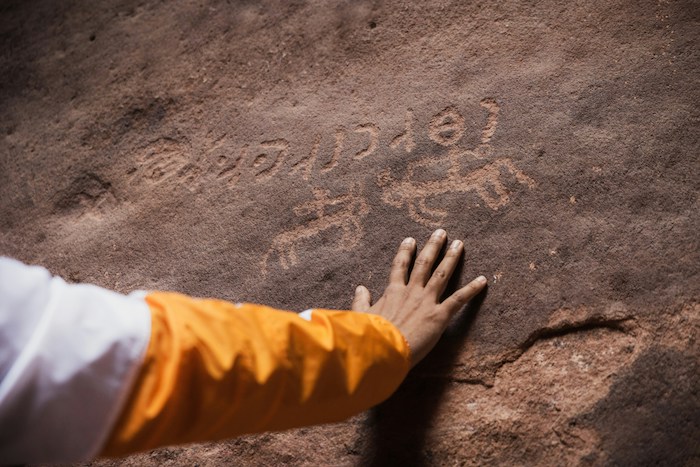
For those with Hispanic heritage, learning Spanish goes beyond simply acquiring a new language—it’s a way to connect with family, culture, and ancestry. Heritage language learners often have unique goals and needs compared to other language students, including reconnecting with family, understanding cultural nuances, and refining a language they may have partially grown up with. Choosing a Spanish teacher or coach who understands these specific needs is essential. Here are some important factors to consider when looking for the right Spanish language teacher or coach as a heritage learner.
8 key factors to consider
1. Experience working with heritage learners
Heritage language learners often come to Spanish classes with some level of language exposure, but their fluency and literacy can vary greatly. Some may have grown up hearing Spanish at home but never learned to read or write it, while others may speak it but need help with grammar or formal language skills. Look for a teacher who has experience working with heritage learners and understands the unique challenges and opportunities involved.
Teachers experienced with heritage learners will know how to build upon existing skills, while addressing areas that might need more focused practice, such as grammar, vocabulary expansion, and formal versus informal language.
2. Cultural competency and sensitivity
For heritage learners, learning Spanish isn’t just about words and grammar; it’s also about cultural connection. A teacher who is culturally competent will understand this and will incorporate cultural context into lessons. They’ll help you understand regional dialects, cultural idioms, and colloquialisms, and they can offer insights into customs, values, and histories relevant to your heritage.
If you’re from a Mexican, Puerto Rican, Cuban, Spanish or another Hispanic background, ask if the teacher is familiar with the nuances of that particular culture. This can make a big difference, as learning culturally relevant phrases, expressions, and references can enrich your language experience and deepen your connection to your roots.
3. Customized curriculum and flexible approach
Heritage learners often have varied language needs compared to traditional learners. For some, conversational fluency may come easily, while reading, writing, or grammar might require more structured practice. Look for a teacher who can tailor their curriculum to your needs, focusing on specific areas rather than a “one-size-fits-all” approach.
For example, if you grew up understanding and speaking some Spanish but never formally studied it, you may want a coach who focuses on improving your grammar and literacy skills. If your goal is to communicate better with Spanish-speaking family members, you’ll want lessons that emphasize conversational skills over academic or formal Spanish.
4. Patience, empathy and understanding of “Language Guilt”
Many heritage language learners feel “language guilt”—the feeling of not being “enough” of a speaker of their ancestral language, embarrassed by their accent or mistakes, or feeling like they don’t speak “well enough” to meet family or community expectations. These feelings can sometimes be tied to deeper anxieties or even past experiences of being criticised, teased, or discouraged from using Spanish. A trauma-informed teacher understands that these emotions may stem from personal or intergenerational experiences of language shame or discrimination. They’ll create a learning environment that feels safe, welcoming, and free from judgment, helping you overcome fears or anxieties about “not being enough” in your heritage language.
A trauma-informed approach to teaching recognises that each student brings a unique emotional history to the learning experience. Such a teacher will avoid pressuring you to speak perfectly and instead encourage gradual, positive reinforcement that builds confidence. They’ll respect the emotional complexities of reconnecting with a language that may have been the site of past discomfort or marginalisation. With a trauma-informed teacher, you’re not just learning language skills; you’re being supported in reclaiming your connection to your heritage in a way that feels respectful, validating, and empowering.
5. Emphasis on practical, real-world language skills
For many heritage learners, the goal is to be able to converse confidently with family or understand conversations in social and community settings. Look for a teacher who can help you develop practical language skills and focus on everyday vocabulary, expressions, and interactions relevant to your life.
The ideal teacher will also provide opportunities for role-playing, real-life scenarios, and conversational practice that go beyond textbook exercises. They should encourage you to use Spanish naturally, whether by engaging in discussions about your favourite topics, simulating family conversations, or practising navigating everyday situations in Spanish.
6. Understanding of bilingualism and code-switching
If you’re a bilingual or multilingual individual, you might find yourself code-switching—switching between Spanish and English (or another language) within conversations. Many heritage learners engage in code-switching naturally, especially in family or community contexts. A good teacher for heritage learners understands this phenomenon and can help you navigate between languages without guilt or confusion.
An understanding teacher will also know how to work with you to strengthen your Spanish without pressuring you to abandon your unique bilingual or multilingual identity. They should help you embrace your full linguistic identity and view code-switching as a natural, valuable skill rather than a flaw.
7. Availability of community or cultural resources
Some teachers go beyond language instruction to connect their students with community resources or cultural events that can reinforce their learning. This could include suggestions for books, movies, or music from your heritage culture, information on local Hispanic community events, or connections to online groups for Spanish learners from similar backgrounds.
For heritage learners, learning Spanish is a way to access cultural knowledge and community. A teacher who recognises this and can provide recommendations or resources will make your learning experience more fulfilling and culturally enriching.
8. Incorporation of family and personal goals
Heritage learners often come to language study with personal motivations—wanting to communicate with family, learn about family history, or prepare to visit relatives abroad. A teacher who takes the time to understand these goals will be able to make lessons relevant and meaningful.
If your primary goal is to be able to speak to your grandparents in their native language or to understand family stories in Spanish, a teacher who knows this will be able to craft lessons around those objectives. Some teachers may even suggest bringing in family stories or anecdotes to use in lessons, making the learning experience more personal.
Conclusion
Finding the right Spanish teacher or coach as a heritage language learner requires looking for someone who appreciates your unique background and can guide you towards the specific language skills you want to build. By prioritizing experience with heritage learners, cultural understanding, personalized lesson planning, and a supportive attitude, you can ensure that your learning journey is both successful and meaningful.
Remember, learning Spanish as a heritage language is more than an academic endeavour; it’s a way to reconnect with your past, strengthen your identity, and open doors to meaningful connections with family, culture, and community. With the right teacher, you’ll not only improve your language skills but also deepen your appreciation for your heritage.
If you are learning or re-learning Spanish as a heritage language, I can help. I have ample experience working with learners of Hispanic background, and I understand the sometimes complex or difficult relationships with their language and cultural identity.
Please feel free to reach out, and let’s chat.


